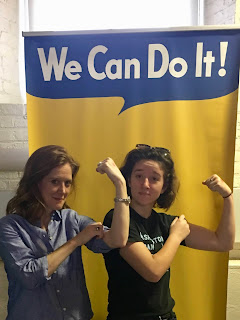Mentoring with Empathy
Recently, I discovered some true strengths of co-workers and mentors that reminded me of one of the greatest strengths a mentor can display, empathy. There were several people who demonstrated and understood the challenge I was going through as my mother-in-law had passed away. Often empathy is confused with sympathy. Sympathy is a feeling of concern and sense that something could make someone happier, but it doesn’t go so far as to attempt to share in the other person’s perspective. According to psychologist Daniel Goleman, empathy, is a vital supplier to develop emotional intelligence, a key skill needed as a mentor.
Colonel Candid presents you with three components of empathy for you to consider the next time your mentee comes to you with a problem or situation requiring empathy.
The first is cognitive empathy, this is the understanding of what the person is likely feeling or thinking. Although you’re not emotionally engaged, you can still use this to help you understand what someone is feeling. A rational approach, cognitive empathy is the first step in understanding but for a mentor it keeps you a bit too neutral.
The next level is affective empathy where you’re changed (affected) by demonstrating empathy about another person’s feelings. This deeper level of understanding allows you to create a genuine connection with your mentee. This type of empathy builds trust and develops a level of honesty and openness with another person.
Lastly, and most actively is compassionate empathy where your mentorship demonstrates a concern, shares in the emotional distress, and takes active steps to reduce the discomfort. As a benevolent mentor you demonstrate this type of compassion by putting aside time for your mentee when they’re demonstrating feelings of vulnerability after getting hurt. You can affirm their reaction, offer support and provide guidance on how to process the situation. If it’s something they need to work on, you can offer practical advice for steps to take the next time they face this situation.
Advice from Colonel Candid to anyone who is mentoring during a period of loss or grief, give people you’re speaking with your full attention. Put down your phone, turn off the binging email sound, and simply take time to listen. In today’s world this is really hard, and you may find yourself having to develop this skill. Personally reflect and see how you respond to people who confide in you when they share bad news. Pay attention to how people act and what they might focus on. You may see that some people don’t require much empathy until those still small moments. Treasure that they trust you with their vulnerability and help them find their way through this tough time and onward to their greatness.



Comments
Post a Comment